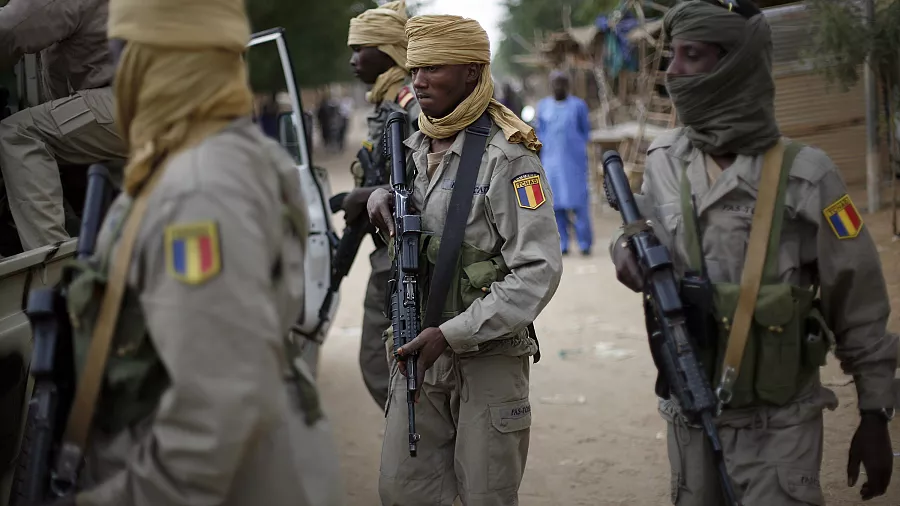Chad complains it is fighting terrorism “alone” in the Lake Chad Basin
3 min read
Chad has ramped up its military operations in response to a recent deadly attack by Boko Haram fighters in the Lake Chad Basin. In late October, the terrorist group targeted a garrison, killing approximately 40 soldiers. Following the attack, President Mahamat Idriss Déby Itno launched Operation Haskanite, an initiative aimed at driving Boko Haram forces out of Chad. Authorities report that around 100 Boko Haram militants have been killed since the operation began.
According to Saleh Haggar, the governor of the Lake province, the operation has been successful. He stated, “I can confirm that there are no more Boko Haram groups on Chadian soil.” Haggar also pointed out that recent confrontations have resulted in the elimination of key militants, including Kanaye Djougoun, a prominent Boko Haram leader. The governor emphasized that the operation has yielded significant results, with the last remnants of the group being cleared from the area.
Chad’s government claims that Boko Haram fighters no longer operate within the country’s borders, suggesting that the group now operates mainly from neighboring Nigeria and Niger. According to authorities, the Lake Chad Basin, an area straddling the borders of Chad, Nigeria, Niger, and Cameroon, has become a key supply region for Boko Haram’s operations.
The Lake Chad Basin has been a hotspot for militant activity for years. Boko Haram’s insurgency, which began in northeastern Nigeria in 2009, has spread across borders, destabilizing neighboring countries and leading to a humanitarian crisis in the region. Over the years, Chad has played a central role in countering the militant group, with its forces often bearing the brunt of the attacks.
However, Chad’s efforts to combat Boko Haram have not been without frustration. The country’s minister of communication, Boukar Michel, voiced strong concerns over the lack of support from the international community. “Why is Chad alone on the battleground?” he asked, highlighting the challenges faced by his country in tackling the insurgency. He also pointed out the failure of the international community to adequately assist refugees and internally displaced persons in the region, many of whom are victims of the ongoing violence. Michel expressed dismay at the absence of humanitarian aid for the displaced and questioned why Chad should be the only nation bearing the costs of such a prolonged conflict.
Chad’s growing sense of isolation in the fight against Boko Haram has led to tensions within regional security forces. The country has reportedly threatened to pull out of the Multinational Joint Task Force (MNJTF), a counterterrorism force established in 2015 to combat Boko Haram and other militant groups in the Lake Chad Basin. The MNJTF includes contributions from Chad, Nigeria, Niger, and Cameroon, but Chad’s recent frustrations underscore the challenges of regional cooperation and the perception that its forces are shouldering much of the burden in the fight against insurgents.
The MNJTF was created to provide a coordinated regional response to Boko Haram’s spread across borders, with the aim of preventing the group from gaining a stronger foothold in the region. While the multinational force has had successes, Chad’s frustrations reflect ongoing issues with coordination and unequal contributions from partner countries.
The growing discontent in Chad highlights a broader challenge in the Lake Chad Basin, where the threat of Boko Haram and other extremist groups continues to plague the region. The humanitarian crisis, combined with the military and logistical strain on Chadian forces, has prompted calls for greater international assistance and a more unified approach to counterterrorism efforts.
Chad’s military operations and the success of Operation Haskanite show the country’s commitment to eradicating Boko Haram from its territory. However, the nation’s leaders are calling for more support from regional partners and the international community to ensure long-term stability and peace in the region. Without more robust cooperation, the situation in the Lake Chad Basin is likely to remain volatile, with Chad continuing to bear much of the burden in the fight against terrorism.






